This week was filled with policy hearings and executive sessions as the Legislature worked toward the opposite house policy cutoff on April 2nd. While moving bills along trying to get them out of committee by policy cutoff was a big focus, a lot of attention was shifted to fiscal activity as both the House and Senate operating and transportation budgets were released, heard in committee, and exec’d out. More on the budget rollouts and revenue proposals below.
This coming week attention will be on the release of the House and Senate capital budgets on Monday, March 31st. The focus will also continue to be on policy committee hearings and executive sessions as they work towards the opposite house policy cutoff on Wednesday. After that, focus will shift to fiscal committees where they have six days to hear and move bills out of the opposite house fiscal committee by the April 8th fiscal cutoff. Follow where we are in the process by consulting the 2025 Session Cutoff Calendar.
Click here to watch this week’s TVW Legislative Review. Episodes are posted every day during session and are just 10 minutes long, providing highlights of the day in Olympia.
Budget Rollouts
At this point, the House and Senate have released their respective transportation and operating budget proposals. Additional details and documents are outlined below. Following the release of each budget, there was (and continues to be) a big flurry of reviewing the proposals, working on amendments, and passing budgets out of committee and off the floor. The House and Senate capital budget proposals are anticipated to be released on Monday, March 31st.
Operating Budgets
Senate Operating Budget: The Senate’s $78.5 billion 2025-27 operating budget proposal includes $3 billion in cuts/reductions and assumes $6.2 billion in new revenue in the upcoming biennium. The budget also utilizes $1.6 billion from the state’s Budget Stabilization Account (aka BSA or Rainy-Day Fund) in State Fiscal Year 2026, with the intention that those funds will be put back into the BSA the following fiscal year once new revenue collection kicks in. The Senate Proposal would leave a total of $7.6 billion in reserves at the end of state fiscal year 2029. The Senate-proposed budget was heard by the Senate Ways & Means committee on March 25th and passed out of committee on March 27th. It then passed off the Senate floor on Saturday, March 29th.
SSB 5167 – budget bill as passed by Senate Ways & Means on 3/27
House Operating Budget: The House’s $77.8 billion 2025-27 operating budget proposal also includes roughly $3 billion in cuts/reductions and assumes $5.2 billion in new revenue in the upcoming biennium. It does not include a transfer from the state’s Rainy-Day Fund. It would leave a total of $6.4 billion in reserves at the end of state fiscal year 2029. The House-proposed budget was heard by the House Appropriations committee on March 25th and passed out of committee on March 27th. It is anticipated to pass off the House floor on March 31st.
PSHB 1198 – budget bill as passed by House Appropriations on 3/27
Transportation Budgets
Senate Transportation Budget: The Senate’s 2025-27 transportation budget includes two bipartisan proposals charting different funding paths for the state’s transportation system. One proposal postpones projects and reduces state agency operating costs to close the $1 billion shortfall in the 2025-2027 biennium, while the other includes a revenue and spending package to account for the budget gap. The all-cuts proposal reduces the capital project budget by $941 million and state agency operating costs by $156 million. These reductions would delay dozens of transportation projects.
Senate Transportation Budget Bill (existing resources)
Existing Resources Agency and Program Detail
The alternate proposal that includes new revenue proposes a $9.2 billion spending plan over the next six years. The plan restores most of the reductions proposed in the all-cuts budget, while also maintaining some certain cuts like staffing reductions and other cost saving measures. The alternate transportation budget proposal is dependant on a bipartisan transportation revenue package that would generate about $10.2 billion over six years.
Senate Transportation Budget Gill (with new revenue)
New Revenue Agency and Program Detail
Senate Transportation Resources Bill
Spending & Revenue Summary (6 year balanced plan)
The Senate’s transportation budget proposal was heard by the Senate Transportation Committee on March 25th, passed out of committee on March 27th, and off the Senate floor on March 29th.
House Transportation Budget: The House’s 2025-27 transportation budget includes one proposal that assumes new revenue. The proposal makes investments in critical areas while acknowledging the significant funding shortfalls that continue to challenge Washington’s transportation system. The budget proposal includes $4 billion in additional revenue and prioritizes preservation, safety, and essential projects while underscoring the need for additional long-term funding solutions. While there is increased funding in certain areas, the proposal also includes cost saving measures including delaying some investments in highway construction, multimodal transportation (like bike paths or public transit), and other infrastructure projects.
House Transportation Budget Bill
Agency and Program Detail
House Transportation Resources Bill
The House’s transportation budget proposal was heard by the House Transportation Committee on March 25th and passed out of committee on March 27th. It is anticipated to pass off the House floor on Wednesday.
Capital Budgets
The House and Senate capital budgets will both be released on Monday, March 31st. Both are scheduled to be heard in their respective committees (House Capital Budget and Senate Ways & Means) on April 1st and executive session on April 3rd.
Revenue Hearings
This week, the Senate and House will be holding hearings on their respective revenue package proposals.
The Senate Ways & Means Committee will hear the bills in their revenue package proposal on March 31st. The bills included in their package include:
SB 5797 Financial Intangibles Tax – a tax of $10 on every $1,000 of assessed value of certain financial assets (stocks, bonds, exchange-traded funds, and mutual funds) held by individuals with more than $50 million of these assets, paid by about 4,300 wealthy individuals. It generates approximately $4 billion per year starting in fiscal year 2027 for public schools, helping the state uphold its paramount duty with new, increased funding for special education services and the growing daily operating costs of running our public schools.
SB 5796 Removing the Cap on Employer Payroll Taxes – a 5% tax on large employers on the amount of payroll expenses above the Social Security threshold — currently $176,100 per year. This tax is limited only to companies with $7 million or more in payroll expenses— about 5,289 companies. The proposal is similar to the city of Seattle’s “JumpStart” tax and includes a full credit for businesses already paying that tax. It would raise about $2.3 billion per year once fully implemented, going to public schools, health care, and other programs that protect the safety and wellbeing of the public and provide basic needs assistance for seniors and those with developmental disabilities.
SB 5798 Allowing Property Tax to Grow by Population and Inflation – raising the property tax growth limit for the state’s common schools levy and for cities and counties, as well as special purpose districts, from the current 1% cap to the combined rate of population growth plus inflation. Local governments have the option to take a lower growth rate if they so choose. The proposal also exempts participants in the “Property Tax Exemption for Senior Citizens and People with Disabilities” program from paying the state property tax, giving a tax reduction for some of our most vulnerable community members. The state property tax is dedicated to public schools, with about $779 million in additional funding over the full four-year budget cycle, while increased funding in cities and counties would go to public safety, criminal justice, and community protection.
SB 5794 Repealing Ineffective & Obsolete Tax Preferences – Repeals 20 tax exemptions where the public policy objective was not met, it is unclear whether the policy objective was met, or the exemption is legally obsolete, according to nonpartisan auditors at the Joint Legislative Audit & Review Committee, including for in-state hauling, gold bullion, prescription drug wholesalers, and more. This generates just over $1 billion over the full four-year budget cycle.
SB 5795 Cutting the Regressive Sales Tax – This proposal reduces the sales tax with a half-point sales tax reduction, from 6.5% to 6% – a decrease in revenue of approximately $1.3 billion per year.
The House Finance Committee will hear the bills in their revenue package proposal on April 3rd. The bills included in their package include:
HB 2045 Surcharge on High-Grossing Corporations and Financial Institutions – Imposes a 1% Business & Occupation (B&O) tax surcharge on businesses with taxable income over $250 million. This surcharge applies to 400 businesses statewide – ensuring that small businesses remain unaffected. The bill also includes an increase to the surcharge on specified financial institutions (approximately 200) with annual net income of $1 billion or more from 1.2% to 1.9%.Under this proposal, Washington will generate nearly $600 million in fiscal year 2026 and nearly $2 billion in fiscal year 2027.
HB 2046 Property Tax Fairness Through Financial Intangible Assets Tax – A Financial Intangible Assets Tax (FIT), imposes a property tax of $8 on every $1000 of assessed value on certain financial intangible assets, such as stocks, bonds, mutual funds, and index funds, with the first $50 million in assessed value exempt from the tax to best ensure tax fairness. Other exemptions include pensions, retirement accounts, and education savings accounts. The Department of Revenue estimates around 4,300 wealthy Washingtonians will pay the tax, generating approximately $2 billion per year, beginning in fiscal year 2027, which will be dedicated to the Education Legacy Trust Account to support Washington families and fund vital investments in K-12 schools.
HB 2049 Increasing State and Local Flexibility to Fund Schools and Public Safety – Invests in the state’s paramount duty to fund K-12 education and build strong and safe communities, modifies the state and local property tax authority and adjust the school funding formula. The bill maintains the 1 percent cap on property tax growth but allows for increases based on inflation and population changes, not to exceed 3 percent. The bill also adjusts levy equalization methods to ensure equitable funding for historically underinvested areas of our state, including rural school districts, mitigating widening funding gaps between schools. The Department of Revenue estimates the change will increase funding for state investment in K-12 schools by $50 million in fiscal year 2026 and $150 million in fiscal year 2027.
Primer: Four Year Balanced Budget
While Washington State operates on a two-year (biennial) budget cycle, legislation was passed in 2012 that requires a four-year balanced budget. The four-year outlook requirement requires the legislature to adopt a budget that balances the current biennium as well as the ensuing biennium. For the current biennium, this means the State General Fund and relevant other funds must not exceed current revenue. For the ensuing biennium, the amount of available fiscal resources must be equal or greater than the projected maintenance level for the ensuing biennium.
There are three main terms that are key to understanding the four-year outlook requirement.
- Balanced Outlook or Budget means there is a positive ending fund balance in the state general fund and related funds for the current and ensuing biennium. A positive ending fund balance for the ensuing biennium requires that the projected maintenance level does not exceed the available fiscal resources.
- Projected Maintenance Level is defined as the estimated appropriations necessary to maintain continuing the costs of programs and service levels that are either funded in the current appropriations bill or are required by state or federal law, plus the amount projected to be transferred to the budget stabilization account (aka the Rainy Day Fund). There are specific exceptions that are not factored into the projected maintenance level.
- Available Fiscal Resources is defined as forecasted revenues adjusted for the greater of either (i) the official revenue forecast for the ensuing biennium, or (ii) 4.5% annual growth for the next biennium based on the second year of the current biennium.
The Budget Outlook Workgroup holds a key role in this process by preparing an official state budget outlook for state revenues and expenditures. This outlook must include costs forecasted in the upcoming four years for continuing existing programs, projecting for future growth as well as implementation costs of various laws. The Economic and Revenue Forecast Council then approves this budget outlook and the Legislature uses this information to craft and pass a budget ensuring the state’s expenditures do not exceed projected revenues for the following four years.
Upcoming Events Report
Labor & Commerce (Senate) – SHR 1 and Virtual J.A. Cherberg – 3/31 @ 10:30am
SB 5786 – Exec Session – Increasing license, permit, and endorsement fees.
ESHB 1622 – Public Hearing – Allowing bargaining over matters related to the use of artificial intelligence. (Remote Testimony Available).
Environment & Energy (House) – HHR B and Virtual JLOB – 3/31 @ 1:30pm
ESSB 5360 – Exec Session – Concerning environmental crimes.
SB 5036 – Exec Session – Strengthening Washington’s leadership and accountability on climate policy by transitioning to annual reporting of statewide emissions data.
Ways & Means (Senate) – SHR 4 and Virtual JACB – 3/31 @ 4:00pm
SB 5797 – Public Hearing – Enacting a tax on stocks, bonds, and other financial intangible assets for the benefit of public schools. (Remote Testimony Available).
SB 5796 – Public Hearing – Enacting an excise tax on large employers on the amount of payroll expenses above the social security wage threshold to fund programs and services to benefit Washingtonians. (Remote Testimony Available).
SB 5798 – Public Hearing – Concerning property tax reform. (Remote Testimony Available).
SB 5794 – Public Hearing – Adopting recommendations from the tax preference performance review process, eliminating obsolete tax preferences, clarifying legislative intent, and addressing changes in constitutional law. (Remote Testimony Available).
SB 5795 – Public Hearing – Reducing the state sales and use tax rate. (Remote Testimony Available).
Capital Budget (House) – HHR B and Virtual JLOB – 4/1 @ 8:00am
HB 1202 – Public Hearing – Concerning state general obligation bonds and related accounts. (Hearing is on the Proposed Substitute.)
Law & Justice (Senate) – SHR 4 and Virtual JACB – 4/1 @ 9:00am
ESHB 2015 – Exec Session – Improving public safety funding by providing resources to local governments and state and local criminal justice agencies, and authorizing a local option tax.
Labor & Commerce (Senate) – SHR 1 and Virtual J.A. Cherberg – 4/1 @ 10:30am
ESHB 1622 – Exec Session – Allowing bargaining over matters related to the use of artificial intelligence.
ESHB 1332 – Exec Session – Concerning transportation network companies.
Local Government (House) – HHR E and Virtual JLOB – 4/1 @ 11:00am
ESSB 5611 – Exec Session – Streamlining and clarifying local governments’ land use permitting workloads.
SSB 5374 – Exec Session – Including tribal representation in certain transportation activities.
Local Government (House) – HHR E and Virtual JLOB – 4/2 @ 8:00am
SSB 5374 – Exec Session – Including tribal representation in certain transportation activities.
ESSB 5611 – Exec Session – Streamlining and clarifying local governments’ land use permitting workloads.
Appropriations (House) – HHR A and Virtual JLOB – 4/2 @ 4:00pm
HB 1468 – Exec Session – Concerning accounts.
SSB 5314 – Public Hearing – Modifying the capital gains tax. (Remote Testimony Available).
Finance (House) – HHR A and Virtual JLOB – 4/3 @ 8:00am
HB 2045 – Public Hearing – Investing in Washington families by restructuring the business and occupation tax on high grossing businesses and financial institutions. (Remote Testimony Available).
HB 2046 – Public Hearing – Creating fairness in Washington’s tax by imposing a tax on select financial intangible assets. (Remote Testimony Available).
HB 2049 – Public Hearing – Investing in the state’s paramount duty to fund K-12 education and build strong and safe communities. (Remote Testimony Available).
Capital Budget (House) – HHR B and Virtual JLOB – 4/3 @ 9:00am
HB 1202 – Exec Session – Concerning state general obligation bonds and related accounts.
Appropriations (House) – HHR A and Virtual JLOB – 4/3 @ 1:30pm
ESSB 5509 – Public Hearing – Concerning the siting of child care centers. (Remote Testimony Available).
ESB 5559 – Public Hearing – Streamlining the subdivision process inside urban growth areas. (Remote Testimony Available).
HB 2047 – Public Hearing – Eliminating the Washington employee ownership program. (Remote Testimony Available).
HB 2048 – Public Hearing – Eliminating the Washington state leadership board. (Remote Testimony Available).
HB 2050 – Public Hearing – Implementing K-12 savings and efficiencies. (Remote Testimony Available).
Transportation (House) – HHR B and Virtual JLOB – 4/3 @ 1:30pm
SSB 5773 – Public Hearing – Concerning alternative procurement and delivery models for transportation projects. (Remote Testimony Available).
SB 5649 – Public Hearing – Creating a Washington state supply chain competitiveness infrastructure program. (Remote Testimony Available).
Transportation (Senate) – SHR 1 and Virtual J.A. Cherberg – 4/3 @ 1:30pm
SB 5802 – Public Hearing – Rebalancing statutory fund transfers and revenue dedications for transportation. (Remote Testimony Available).
Ways & Means (Senate) – SHR 4 and Virtual JACB – 4/3 @ 1:30pm
2SHB 1183 – Public Hearing – Concerning building code and development regulation reform. (Remote Testimony Available).
HB 1494 – Exec Session – Concerning the property tax exemptions for new and rehabilitated multiple-unit dwellings in urban centers.
SHB 1791 – Exec Session – Increasing the flexibility of existing funding sources to fund public safety and other facilities by modifying the local real estate excise tax.
Appropriations (House) – HHR A and Virtual JLOB – 4/4 @ 1:30pm
SSB 5040 – Public Hearing – Expanding the definition of uniformed personnel to all law enforcement officers employed by a city, town, county, or governing body of a municipal airport operating under the provisions of chapter 14.08 RCW. (Remote Testimony Available).
ESSB 5041 – Public Hearing – Concerning unemployment insurance benefits for striking or lockout workers. (Remote Testimony Available).
SSB 5469 – Public Hearing – Prohibiting algorithmic rent fixing and noncompete agreements in the rental housing market. (Remote Testimony Available).
ESSB 5719 – Public Hearing – Concerning local government hearing examiners. (Remote Testimony Available).
HB 2040 – Public Hearing – Concerning the recovery of the aged, blind, or disabled assistance program. (Remote Testimony Available).
HB 2061 – Public Hearing – Regarding concession fees by duty-free sales enterprises. (Remote Testimony Available).
Transportation (House) – HHR B and Virtual JLOB – 4/4 @ 1:30pm
SSB 5690 – Exec Session – Concerning actions of the department of transportation to notify utility owners of projects and seek federal funding for utility relocation costs.
Ways & Means (Senate) – SHR 4 and Virtual JACB – 4/4 @ 1:30pm
EHB 1217 – Public Hearing – Improving housing stability for tenants subject to the residential landlord-tenant act and the manufactured/mobile home landlord-tenant act by limiting rent and fee increases, requiring notice of rent and fee increases, limiting fees and deposits, establishing a landlord resource center and associated services, authorizing tenant lease termination, creating parity between lease types, and providing for attorney general enforcement. (Remote Testimony Available).
3SHB 1491 – Public Hearing – Promoting transit-oriented housing development. (Remote Testimony Available).
SHB 1811 – Public Hearing – Enhancing crisis response services through co-response integration and support. (Remote Testimony Available).
